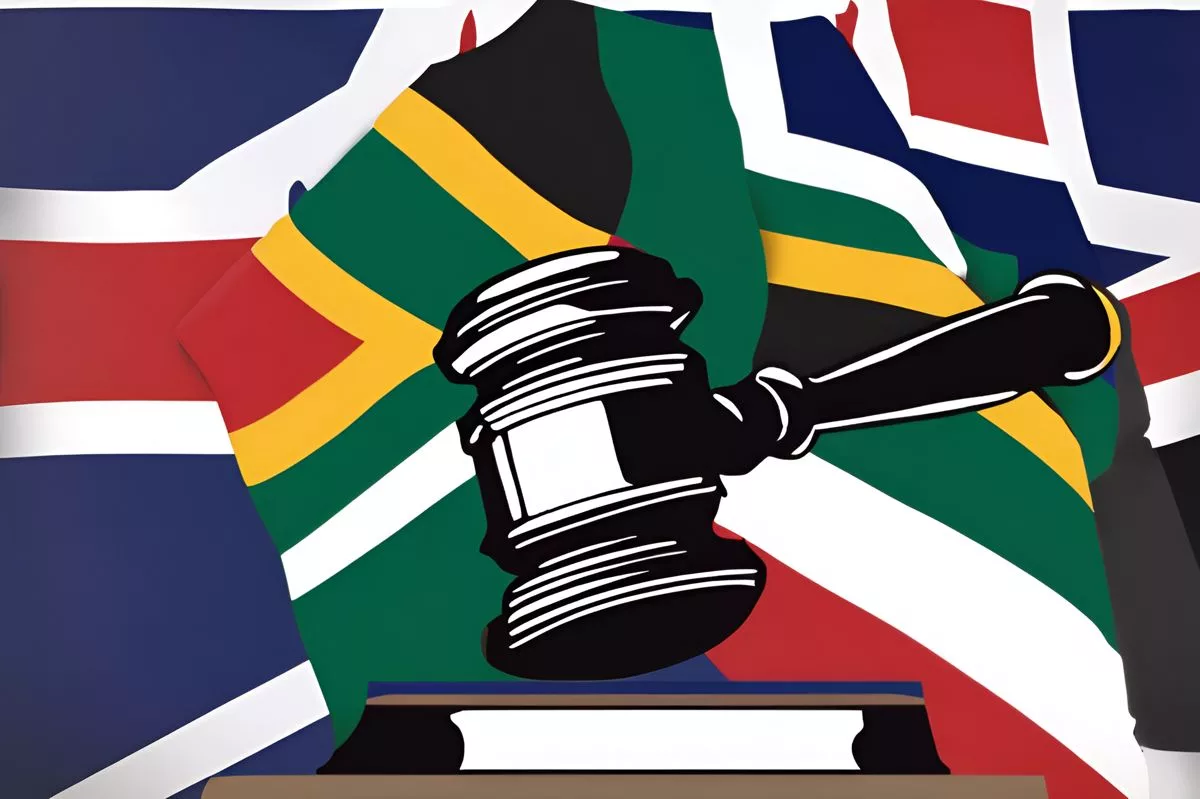The Zondo Commission was set up in South Africa to investigate corruption and state capture. The President presented the Commission’s report and implementation plan in October 2022, showing the country’s commitment to transparency and accountability. Parliament is actively working on implementing the recommendations, and the upcoming media briefing by Acting Speaker Mr. Tsenoli will highlight the progress made, including the challenges and successes, in carrying out the Commission’s recommendations as part of the country’s ongoing pursuit of a corruption-free society and a dynamic democracy.
What is the Zondo Commission?
The Judicial Commission of Inquiry into State Capture, Corruption, and Fraud within the Public Sector was established in South Africa to investigate allegations of corruption and state capture. President Cyril Ramaphosa presented the Commission’s report along with the Executive’s Implementation Plan in October 2022, symbolizing the country’s commitment to transparency, uprightness, and accountability in the public sector. Parliament has been actively involved in implementing the recommendations and providing updates, with an upcoming media briefing by Acting Speaker of the National Assembly, Mr. Lechesa Tsenoli, on the progress made.
In anticipation of South Africa’s imminent national and provincial polls, Mr. Lechesa Tsenoli, the current Acting Speaker of the National Assembly, readies himself to speak to the nation. His discourse will primarily revolve around the advancements made in carrying out the recommendations of the Judicial Commission of Inquiry into State Capture, Corruption, and Fraud within the Public Sector, inclusive of State Organs.
Pivotal Event and Historical Recap
The upcoming media briefing, slated for 12:00 on Thursday, 23 May 2024 at the Imbizo Centre on Parliament Street, is deemed to be a critical occasion. This won’t just be a regular update but an in-depth evaluation of the legislative and administrative measures taken since the presentation of the State Capture Commission of Inquiry Report in October 2022.
Understanding the sequence of events is critical to fully comprehend the importance of these recommendations. In October 2022, President Cyril Ramaphosa presented to Parliament the State Capture Commission of Inquiry Report along with the Executive’s Implementation Plan. This historic event symbolized the dawn of a strong commitment to transparency, uprightness, and accountability in the public sector.
The Role of Parliament and Commitment to Transparency
Parliament, in its adherence to these principles, devised its exhaustive Implementation Plan. The plan was crafted to guide the review and execution of the Commission’s recommendations, demanding a sturdy collaborative endeavor between Parliament and the Executive.
The expected media briefing by Mr. Tsenoli is more than a regular update. It’s a proclamation of Parliament’s persistent pursuit of transparency and progression. It’s a reaffirmation of a promise made to every South African citizen: their government will be answerable and corruption will be given no quarter.
Mr. Tsenoli’s speech will also provide a chance to ponder upon the hurdles encountered and the landmarks achieved in this gargantuan task. The shades of the progress will be discussed in an approachable and engaging style, drawing on South Africa’s rich democratic journey.
Engaging with the Public and Notable Contributions
The briefing is planned as a physical event, a testament to Parliament’s resolve to uphold open and democratic interaction, as stated in the Constitution, which asserts that a parliamentary committee meeting can’t be closed to the public “unless it is reasonable and justifiable to do so in an open and democratic society”.
Active involvement and curiosity in such crucial updates are indispensable to the flourishing of democracy. The forthcoming briefing, as such, is an invitation to the public to interact with the country’s political apparatus, whether that involves arranging a tour of the parliament, attending a debate, or simply seeking out contact details for future reference.
The role of Parliament’s members cannot be discussed without appreciating their contributions. A case in point is Mr. Mikateko Golden Mahlaule from the African National Congress, who represents the Limpopo province. His active involvement in the Portfolio Committee on Mineral Resources and Energy exemplifies Parliament’s commitment to sectoral oversight and robust legislative measures.
In essence, the impending media briefing mirrors South Africa’s steadfast commitment to transparency, integrity, and accountability. It’s a reflection of the tireless efforts by individuals like Mr. Tsenoli and Mr. Mahlaule, as well as many other Parliament members who work indefatigably to ensure the precise implementation of the Judicial Commission of Inquiry’s recommendations.
As South Africa eagerly awaits this noteworthy event, it’s important to recall that it symbolizes an unyielding pursuit of a corruption-free society. It serves as a reminder of the collective responsibility each citizen holds in ensuring the successful execution of these recommendations, and more importantly, the ongoing progress of South Africa’s dynamic democracy.
What is the Zondo Commission and its purpose?
The Zondo Commission, or Judicial Commission of Inquiry into State Capture, Corruption, and Fraud within the Public Sector, was established in South Africa to investigate allegations of corruption and state capture. The Commission’s purpose is to promote transparency, uprightness, and accountability in the public sector.
What is the Executive’s Implementation Plan?
The Executive’s Implementation Plan was presented by President Cyril Ramaphosa to Parliament in October 2022 along with the State Capture Commission of Inquiry Report. The plan is designed to guide the review and execution of the Commission’s recommendations, demanding a sturdy collaborative endeavor between Parliament and the Executive.
What is the upcoming media briefing by Acting Speaker Mr. Tsenoli?
The upcoming media briefing by Acting Speaker Mr. Tsenoli will highlight the progress made in carrying out the recommendations of the Judicial Commission of Inquiry, inclusive of State Organs, as part of the country’s ongoing pursuit of a corruption-free society and a dynamic democracy.
When and where will the media briefing take place?
The media briefing is scheduled for 12:00 on Thursday, 23 May 2024, at the Imbizo Centre on Parliament Street.
Why is public engagement important?
Active involvement and curiosity in such crucial updates are indispensable to the flourishing of democracy. The forthcoming briefing is an invitation to the public to interact with the country’s political apparatus, whether that involves arranging a tour of the parliament, attending a debate, or simply seeking out contact details for future reference.
How does the media briefing reflect South Africa’s commitment to transparency and accountability?
The impending media briefing mirrors South Africa’s steadfast commitment to transparency, integrity, and accountability. It serves as a reminder of the collective responsibility each citizen holds in ensuring the successful execution of these recommendations, and more importantly, the ongoing progress of South Africa’s dynamic democracy.












